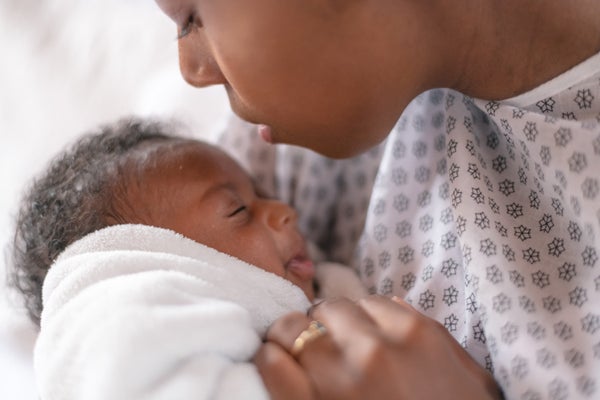This article was published in Scientific American’s former blog network and reflects the views of the author, not necessarily those of Scientific American
The unfortunate reality of the coronavirus pandemic is that it has shown how unprepared and underfunded the public health infrastructure in the U.S. is to address the basic needs of our citizens. As health care workers adapt to dwindling personal protective equipment and exponential cases of the virus, we are forced to witness difficult decisions being made that could, and should, have been prevented. One consequence of being unprepared is the unintended repercussions from new rules that are being adopted in many places for laboring and birthing people. Many hospitals in New York City, described as the epicenter of the disease caused by the coronavirus (COVID-19) in the U.S., have already stated that doulas or spouses cannot be present during labor or birth because of the virus. The World Health Organization, however, does not recommend this practice in its COVID-19 guidelines. Nor do these rules comply with other recent recommendations.
In the U.S., childbirth is the number-one reason people are admitted to the hospital. Additionally, in the midst of a black maternal health crisis, New York has been highlighted as having a maternal morbidity rate for black women that was 12 times higher than it was for white women between 2006 and 2010. In light of these facts, the recent decision of some of the city’s hospitals should raise concern about how the barring of doulas and spouses may disproportionately affect populations, such as black women, who are already vulnerable to disbelief and mistreatment by hospital staff—a situation that could potentially worsen without anyone there to advocate for them.
The U.S. lags behind other nations that have access to comprehensive teams of birth workers, including community health workers, doulas, midwives and physicians. A recent 50-state analysis of where midwifery is fully integrated in birth services showed increased vaginal birth versus cesareans, less obstetric interventions and fewer adverse neonatal outcomes in those places. Research from 26 studies using data from 17 countries that included more than 15,000 women has shown that continuous labor support improves birth outcomes and decreases unnecessary interventions. In the face of a global pandemic, it is important to consider the risks versus benefits of the new hospital rules in New York, given their greater potential to cause birthing people to experience isolation, postpartum depression, decreased nutrition, and less support for breastfeeding and transitioning to the role of parent in the midst of social distancing.
On supporting science journalism
If you're enjoying this article, consider supporting our award-winning journalism by subscribing. By purchasing a subscription you are helping to ensure the future of impactful stories about the discoveries and ideas shaping our world today.
As a registered nurse, it would be irresponsible for me not to address the real and important dangers that motivated this rule change. Clinical providers are facing a lack of testing and basic equipment to protect ourselves and other patients. The shortages of personal protective equipment and inadequate staffing present real risks to frontline health care workers and hospital personnel. Additionally, recent discussions about the rationing of essential health services are ethically challenging and heartbreaking. We all understand why these decisions were made. It is important, however, for us, as a public health community, as well as citizens of this country, to determine the consequences of our choices.
We must consider other ways to provide essential, safe and high-quality care during labor and birth. Alternatives to banning all support persons could include: (1) Setting up telehealth doula services and lactation and prenatal care by providing birthing people iPad access (including data plans). (2) Offering vouchers for food and meal-delivery services. And (3) investing in home birth and birth centers to expand or maintain their current services.
Surviving a pandemic requires a collective effort. Ensuring those most vulnerable in our society receive the support they need is an ethical imperative. To suggest that birthing people be isolated from the essential support they need as they bring new people into the world should be considered only as a last resort. Clearly, we need as many creative minds as possible to develop methods to get such individuals the social support they deserve.
Read more about the coronavirus outbreak here.
